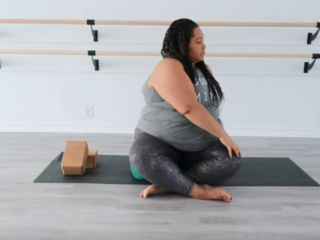
Are you looking to lose weight quickly and effectively? Then the keto diet may be for you! The keto diet is a low-carb, high-fat diet that has been shown to lead to weight loss and improved health.But does the keto diet really work? In this blog post, we’ll take a look at the science behind the keto diet and see if it’s truly effective for weight loss. We’ll also provide some tips on how you can successfully start and stick to a keto diet.
Lifestyle keto does it work
The keto diet is a high-fat, low-carbohydrate diet that has been gaining popularity in recent years. The aim of the diet is to induce a state of ketosis in the body, whereby the body burns fat for energy rather than carbohydrates. There is some evidence to suggest that the keto diet can help with weight loss, although more research is needed in this area.
How does the keto diet work?
The keto diet is a low-carb, high-fat diet. It’s similar to other low-carb diets like the Atkins diet, but it stresses getting most of your carbs from healthy fats instead of proteins and fiber. The goal is to get your body into a state of ketosis, when your body burns fat for energy, instead of glucose. There are different types of keto diets, but the most common one is the Standard Ketogenic Diet (SKD), which is what we’ll focus on in this article. The SKD is the classic low-carb, high-fat diet that’s been widely studied and shown to be effective for weight loss and improving metabolic health.
What are the benefits of the keto diet?
The keto diet is a high-fat, low-carbohydrate diet that has been gaining popularity in recent years. Proponents of the diet claim that it can help you lose weight quickly and improve your overall health.There is some scientific evidence to support these claims, but the keto diet is not without its risks. This article will explore the potential benefits and risks of the keto diet so you can make an informed decision about whether it’s right for you.
The keto diet is based on the principle of “ketosis”, which is when your body burns fat for energy instead of carbohydrates. When you follow a keto diet, your carb intake is very low (typically less than 50 grams per day) and most of your calories come from fat. This forces your body into a state of “ketosis”, where itburns fat for energy instead of carbs.Some people believe that this type of diet can help you lose weight quickly and improve your overall health, as well as reduce inflammation and balance blood sugar levels. There is some scientific evidence to support these claims, but the keto diet is not without its risks.
What are the risks of the keto diet?
The keto diet has been associated with a wide range of potential health benefits, but there are also some risks to consider before you startAny restrictive diet carries the risk of triggering an eating disorder, and the keto diet is no exception. Some people may find it difficult to stick to such a high-fat, low-carbohydrate diet long term, especially if they have any underlying mental health conditions.
There is also the potential for adverse side effects when starting the diet, such as the “keto flu,” which is a group of symptoms that can include headache, nausea, fatigue, and difficulty concentrating. These usually subside after a few days or weeks as your body adjusts to the new diet. If you have any preexisting medical conditions (such as diabetes or high blood pressure), speak to your doctor before starting the keto diet to make sure it’s safe for you.
How to lose weight with the keto diet
There are many different diets out there, and it can be tough to know which one is right for you. If you’re looking to lose weight quickly, the keto diet may be a good option for you. The keto diet is a low-carb, high-fat diet that has been shown to lead to weight loss. In fact, one study found that people who followed the keto diet lost more weight than those who followed a different type of diet.
If you’re considering trying the keto diet, there are a few things you should know. First, it’s important to make sure you’re eating enough fat and enough protein. Eating too little of either one can make it difficult to stick to the diet and can lead to weight gain. Second, it’s important to stay hydrated on the keto diet by drinking plenty of water. Dehydration can lead to fatigue and headaches, so it’s important to make sure you’re drinking enough water each day. Finally, like with any diet, it’s important to talk to your doctor before starting the keto diet, especially if you have any underlying health conditions










